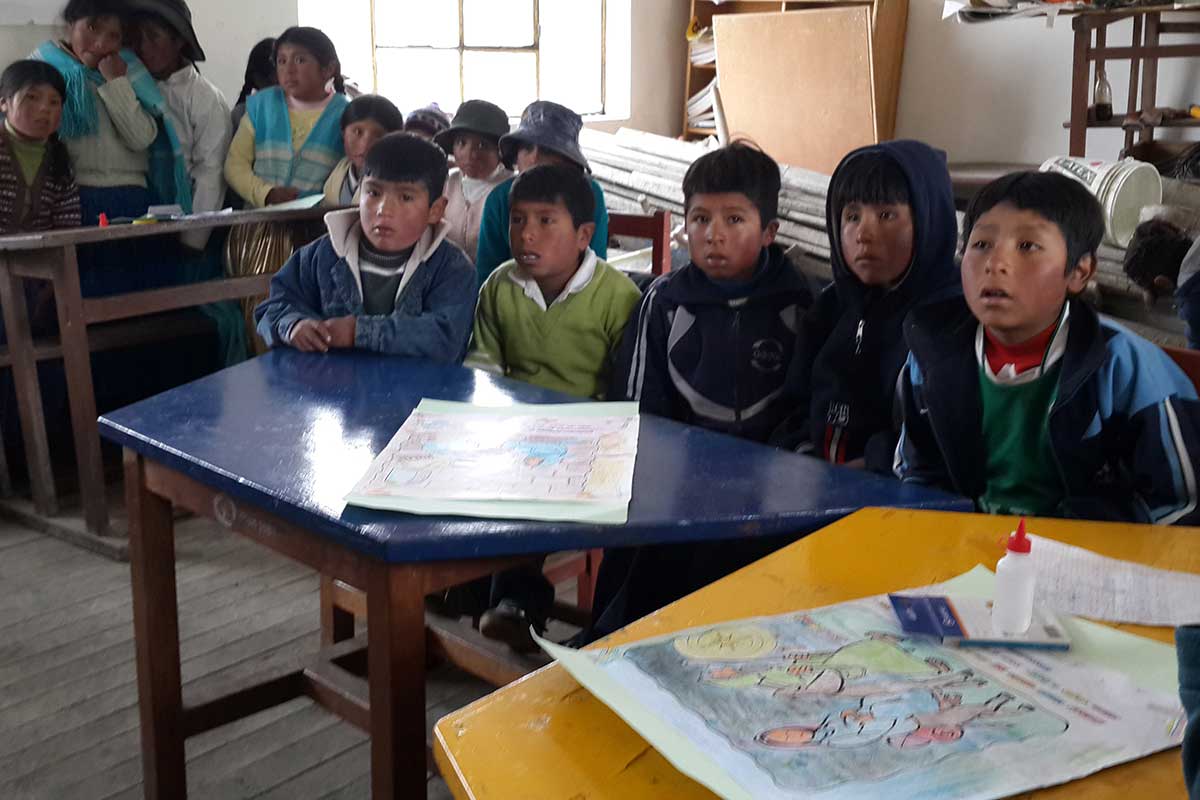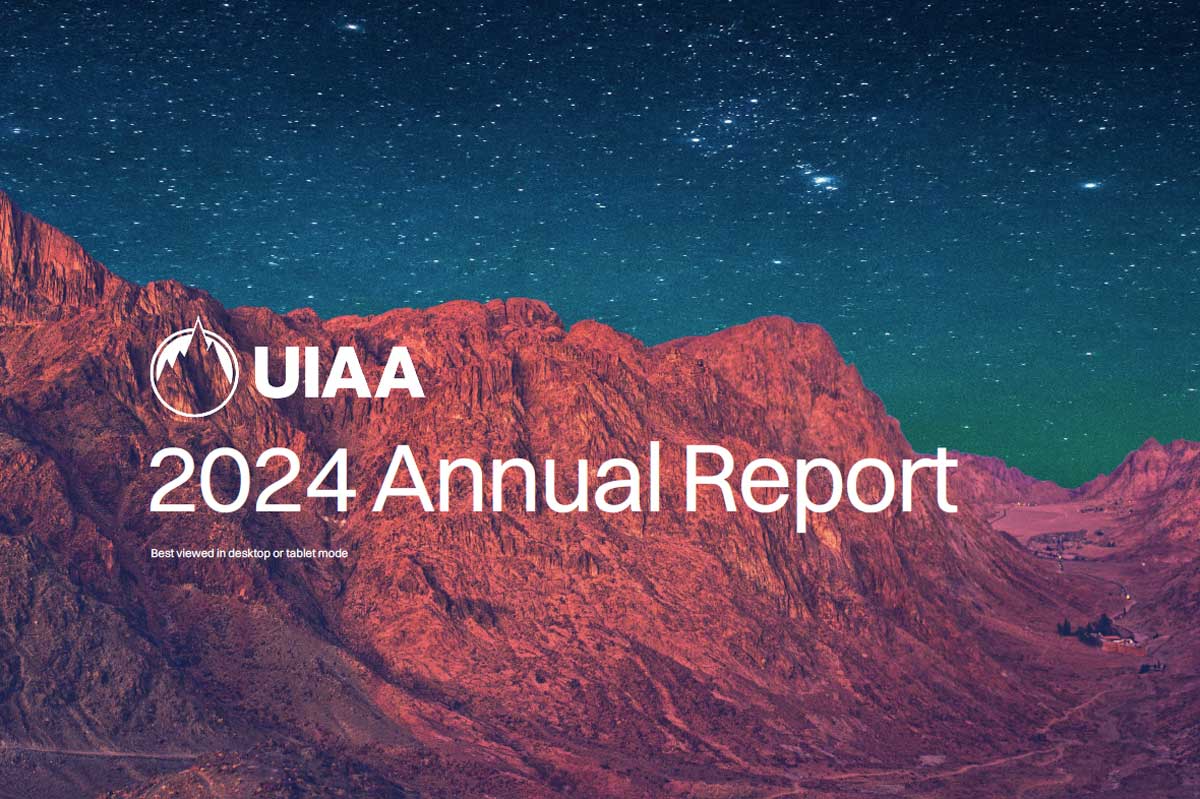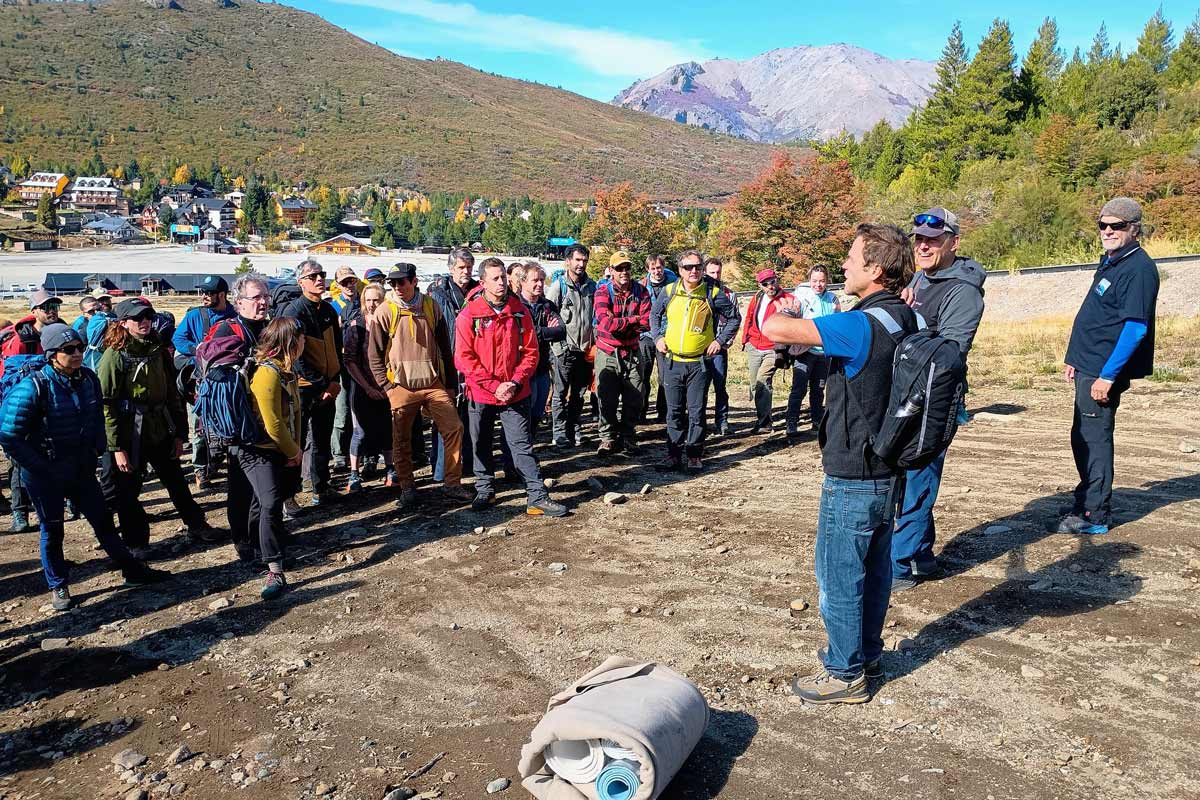The theme of this year’s United Nations’ International Mountain Day (IMD) is #mountainsmatter, a subject which provides institutions, communities and organisations with freedom to dedicate their IMD focus towards topics such as water, tourism, disaster risk reduction, food, indigenous peoples and biodiversity.
One of the UIAA’s principal activities in the field of mountain sustainability is its annual Mountain Protection Award, a scheme designed to showcase, support and promote projects which strive to unite tourist, or other, organisations engaged in protecting the mountain environment with mountain communities and mountaineers. These initiatives support local people, encourage economic growth, provide improvements to infrastructure, education and health services, promote the practice of sustainable climbing and mountaineering and have mountain protection at their core.

Profiling a number of this year’s nominated MPA initiatives, the UIAA reveals how a number of these projects are creating a lasting legacy by ensuring #mountainsmatter for youth, the focus of the UIAA’s commitment to IMD 2018.
Despite the beautiful and wild landscapes, life in the mountains can be tough, particularly for rural youth. Abandoning their villages in search of employment elsewhere has led to an absence of young people and an increasing labour shortage. Migration from mountains leads to an increase in abandoned agricultural and land degradation. At community level, cultural values and ancient traditions are lost. Here is how a number of UIAA Mountain Protection Award nominees are helping to combat that trend.
“Understanding and appreciating the underpinning values and aspirations that these young people have for their well-being, livelihoods and future security are paramount for creating meaningful incentives for them to remain and contribute to their community’s sustainable mountain development,” explains UIAA Mountain Protection Commission President Dr Carolina Adler. “Education and training options that respond to and offer opportunities to materialise these aspirations, and at the same time support mountain protection and sustainability objectives, are needed. Here is where the mountain environment and responsible mountain-based tourism and recreation, in collaboration with the broader mountaineering community, can make a contribution”.
#MOUNTAINSMATTER FOR YOUTH: EDUCATION AND TRAINING

Created in the summer of 2018, Mountain Wilderness International’s SWAT Project is dedicated to improving the knowledge and skills of local youth groups. Centred on Pakistan’s Swat Valley, the initiative encourages youngsters to actively contribute to a printed guide for visiting climbers profiling hiking trails and light ascents in the local mountains.
As part of this process, youngsters develop and exchange knowledge about the local area and receive training in how to promote environmentally-friendly mountaineering and trekking. The ultimate goal is to support youngsters in their mission to become trekking or mountain guides and to provide them with sustainable future employment. Proceeds from the sale of the guidebooks are also reinvested into the area to help bolster mountain protection and create more sustainable working opportunities for young people.
FACT: 24 youngsters are taking part in the inaugural SWAT scheme.
#MOUNTAINSMATTER FOR YOUTH: IMPROVING SCHOOLS
Winner of the 2018 UIAA Mountain Protection Award, Community Action Nepal (CAN), places youth legacy at the core of its work in reconstructing the infrastructure of areas of Nepal devastated by earthquakes, most notably April 2015’s devastating catastrophe.

CAN has rebuilt vital community assets such as health posts, schools, porter shelters and gompas, while at the same time maintaining core health and educational provision and supporting livelihoods. New buildings have been designed to be more earthquake resistant ensuring that should another disaster occur, the infrastructure will prove more robust. A particular focus is on education; very quickly after the earthquake, temporary classrooms were opened and remained so until new school buildings were constructed under the mantra ‘to build back better’. Full details on CAN’s education programme and construction of new schools can be found here.
FACT: In the past three years, CAN has ‘built back better’ 95% of its own projects – 20 years of work which was wiped out within 20 minutes of April 2015’s earthquake.
#MOUNTAINSMATTER FOR YOUTH: SCIENTIFIC EXPERTISE

One of the primary targets of the Chachacomani Glacier (main image) project by Servizio Glaciologico Lombardo, a groundbreaking study of Bolivia’s receding glaciers, is to strengthen the knowledge of young people through the acquisition of advanced scientific skills. This acquired expertise will help youngsters in finding job opportunities both in the fields of tourism and science. It will also help reduce the of migratory phenomena to urban areas such as La Paz. These migratory flows are leading to inevitable forms of social hardship, marginalization and criminal activities in addition to the loss of Andean cultures and traditions like Quechua and Aymara. The scheme also offers an annual scholarship to Italy for the most motivated and deserving student.
FACT: More than 27% of the water, supplying the reserves of La Paz (administrative capital of Bolivia) and El Alto, combining nearly three million inhabitants in total, derives from the melting Cordillera Real glaciers.
#MOUNTAINSMATTER FOR YOUTH: RESPECTING TRADITIONS
Fondation Gran Paradis’ Giroparchi Nature Trail, 2018 MPA runner-up, offers Italian teenagers aged between 11-14 the opportunity to spend up to a week in the Aosta Valley to develop their language skills in English and acquire knowledge of mountains regions and traditions through meeting local people and international trekkers. A focus each year is a different subject typically fauna, geology or local customs and is supported by visits to museums and monuments. The youngsters also learn about the management of protected areas, best safety practices, mountain ethics and are empowered to become future ambassadors for the Gran Paradiso Natural Park.

FACT: In its six years, Giroparchi Nature Trail has offered this unique mountain experience to over 200 youngsters.
#MOUNTAINSMATTER FOR YOUTH: KNOWLEDGE AND RESEARCH
The goal of Argentina-based Tracks Safety, 2018’s best new MPA initiative, is to develop a dynamic online system that allows mountaineers and other visitors to Argentina’s wilderness areas to contribute to the collection of information regarding the local environment and communities. Small mountain communities often exist in isolation, beyond the reach and resources of many governmental authorities. Little is known about their demographics, their health, their resource needs, or their struggles.

Tracks Safety plans to enable the users of their platform to record, survey, and study the health, homes, needs, and issues of local communities – essentially becoming amateur census-takers who can relay the data, through the database, to organizations and agencies which might act on it. Tracks Safety believes their new scheme will benefit local economies and, above all, young people. For example, a mountaineer who encounters a local community and finds that they have a resource to offer (whether be it clean water, food, shelter, or pack animals) can note it for future travellers, as well recording the resources which the community might lack. In this way, the Tracks Safety project may foster connection between locals and mountaineers, and, in turn, the wider world.
FACT: As part of the project, mountaineers in Cordoba, Argentina have participated in self-regulation, documenting photos of illegal 4×4 usage, graffiti and trash, in this way enforcing “leave no trace” doctrines.
#MOUNTAINSMATTER: REDUCING MIGRATION
The objective of Mountain Wilderness Italia’s Ethiopia-based A Reason Not To Migrate project is to transmit to local guides technical expertise regarding the management of their environmental and cultural heritage and to provide more sustainable local employment. The Adua area is currently a popular destination for tourists who most of the time are accompanied by impromptu (and even illegal) local guides.

The purpose of the courses organized by Mountain Wilderness Italia is to teach local guides safety techniques in exposed environments, first aid, attention and care for cultural and environmental heritage. The training courses were conceived at the request of local communities and guide associations. The children involved in the training courses all live in local villages and have already carried out a guide role in their respective associations. Junior instructors have received additional climbing materials and have been directly involved in the creation of a small outdoor climbing gym to carry out the necessary exercises for future courses.
FACT: One of the scheme’s focuses is discouraging visitors from camping in environmentally-sensitive areas – this has been a growing problem in recent years. It is dually a problem because the church sites do not have the facilities to support camping (no toilets, showers or running water) and it disturbs the peace and solitude of holy mountain sites.
ABOUT THE UIAA MOUNTAIN PROTECTION AWARD
To discover more about the UIAA Mountain Protection Award click here.
Application for the 2019 UIAA MPA opens in March.
In January 2019, a new Donate page will offer the opportunity to support UIAA MPA nominated projects such as those profiled in this feature.
For details on partnering the prestigious and international UIAA Mountain Protection Award, first launched in 2013, please contact office@theuiaa.org. The Award has showcased projects from 40 different countries and is communicated globally by leading media titles, UIAA member federations, through Award nominees themselves and across UIAA’s communication channels.



